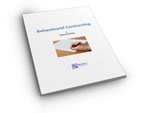The following article was originally published in a national newspaper. As midlife eventually comes all of us and some of you may be working with coaching clients who view it as a crisis time, I hope you will find ideas here to help them.
 There comes a time when we look in the mirror and see our wrinkles for the first time. There even comes a time when we look around and it seems like everyone looks young enough to have just left school.
There comes a time when we look in the mirror and see our wrinkles for the first time. There even comes a time when we look around and it seems like everyone looks young enough to have just left school.
However, while these incidents may come as a surprise, not everyone finds the dawning of this era a painful one. For some, mid-life brings the opportunity to reflect positively on life with the chance to make minor changes to ensure the years that follow are as happy as the ones that have passed; while for others mid-life is a time of disorientation and distress.
Mid-life offers the chance to learn, to let go of the past and move on to the future. It provides an opportunity to prepare for entering a new phase of life. Interestingly, this process can take place at any stage between 40 and 55 and is a very individual one. Mid-life is the time when we begin to come to terms with our own mortality as we recognise that there may be fewer years ahead than behind and that time is a precious commodity.
Whether we like it or not mid-life will come to all of us sooner or later and if you want this time to be one of positive reflection rather than soul-searching crisis then the following tips will help you.
What is the difference between a mid-life reflection and a mid-life crisis?
Every decade brings with it new challenges. We spend our 20’s becoming a fully-fledged adult, establishing our career and our social circle. In our 30’s, we become increasingly more family-orientated and seek even more from our careers trying to make our way up the corporate ladder. When we enter our 40’s, we have usually established ourselves at work, have older or grown-up children, more creature comforts and are likely to begin thinking about the meaning of life and what we want from it.
It is when we enter this period of our lives that we find ourselves ‘reflecting’ on our past life experiences. The more we have lived our life to the full, the less regrets we have and the more likely we are to think positively about what has happened. Realistically, no one ever gets to his or her deathbed without a regret or two regardless of however happy and contented they may have been. Many people feel a sense of regret about some aspect of life that did not work out quite as planned – for example, an opportunity not taken, a life event that was out of our control, not spending more time with the children when they were young or something we wished we had said to a loved one no longer alive. This type of mid-life regret when we reflect on the past is a perfectly normal emotion that usually gets replaced by other positive thoughts and feelings.
Reflection is a gentle process akin to the feeling we get when we watch a love story that leaves us with a range of emotions some of which are unsettling but none of which are unpleasant. For those of us who have spent our lives putting ourselves last, being fearful of taking risks and settling for second best, mid-life can become a time of great distress as the recognition of what has been lost and cannot be regained really hits home. We can become dangerously vulnerable to our feelings and sometimes find ourselves making drastic changes that we come to regret a few years later.
Be Honest
We are all capable of self-deceit. Remember justifying those chocolates with a whole range of excuses or those clothes we bought and the many reasons why it was such a good idea to buy them even though our bank accounts were overdrawn at the time. A little self-deceit never did that much harm. However, if we are honest we know the difference between harmless self-deceit and downright avoidance of reality.
When you are honest with yourself, you don’t make excuses for staying in a poor or damaging relationship. You identify the things you want from all areas of your life and you express your feelings. You know also know that pushing thoughts to the back of your mind just because you do not like them or are afraid of the consequences of acting on them doesn’t help. Being honest with yourself is hard but how can you live your life to the full if you keep on lying to yourself? What’s even worse is that there always comes a day when you have to face the truth because the reality of the situation cannot be avoided any more and the fall-out from all those weeks, months or years of self-deceit can be pretty devastating.
Being honest with yourself does not mean you have to act on all the thoughts you have but it does mean you owe it to yourself to think about what you want, why you want it and whether you can get it.
To be continued ….






